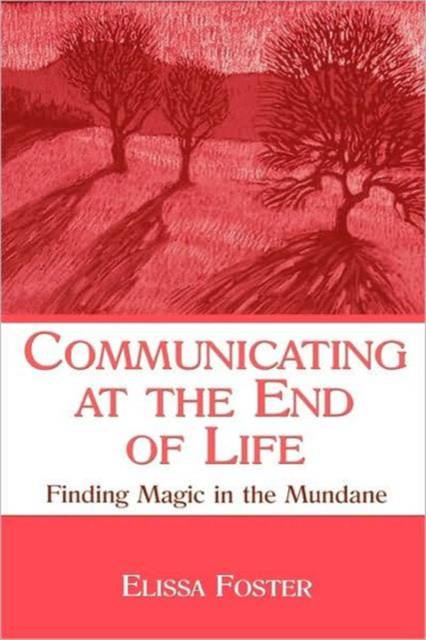
- Afhalen na 1 uur in een winkel met voorraad
- Gratis thuislevering in België vanaf € 30
- Ruim aanbod met 7 miljoen producten
- Afhalen na 1 uur in een winkel met voorraad
- Gratis thuislevering in België vanaf € 30
- Ruim aanbod met 7 miljoen producten
Omschrijving
This enlightening volume provides first-hand perspectives and ethnographic research on communication at the end of life, a topic that has gone largely understudied in communication literature. Author Elissa Foster's own experiences as a volunteer hospice caregiver form the basis of the book. Communicating at the End of Life recounts the stories of Foster and six other volunteers and their communicative experiences with dying patients, using communication theory and research findings to identify insights on the relationships they form throughout the process. What unfolds is a scholarly examination of a subject that is significant to every individual at some point in the life process.
Organized chronologically to follow the course of Foster's involvement with hospice and the phases of the study, the book opens with Part 1, providing background and contextual information to help readers understand subsequent stories about communication between volunteers and patients. Part 2 of the volume emphasizes the adjustments required by the volunteers as they entered the world of hospice and the worlds of the patients. Part 3 underscores the importance of improvisation and finding balance within the role of volunteer--in particular how to be fully present for patients as well as their family members. The volume concludes with Part 4, which addresses how volunteers coped with the death of their patients and what they learned from the experience of volunteering. Communicating at the End of Life is appropriate for scholars and advanced students studying personal relationships, health communication, gerontology, interpersonal communication, lifespan communication, and communication & aging. Its unique content offers precious and meaningful insights on the communication processes at a critical point in the life process.Specificaties
Betrokkenen
- Auteur(s):
- Uitgeverij:
Inhoud
- Aantal bladzijden:
- 264
- Taal:
- Engels
- Reeks:
Eigenschappen
- Productcode (EAN):
- 9780805855661
- Verschijningsdatum:
- 19/10/2006
- Uitvoering:
- Hardcover
- Formaat:
- Genaaid
- Afmetingen:
- 162 mm x 236 mm
- Gewicht:
- 512 g

Alleen bij Standaard Boekhandel
Beoordelingen
We publiceren alleen reviews die voldoen aan de voorwaarden voor reviews. Bekijk onze voorwaarden voor reviews.











